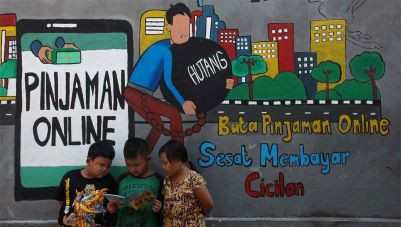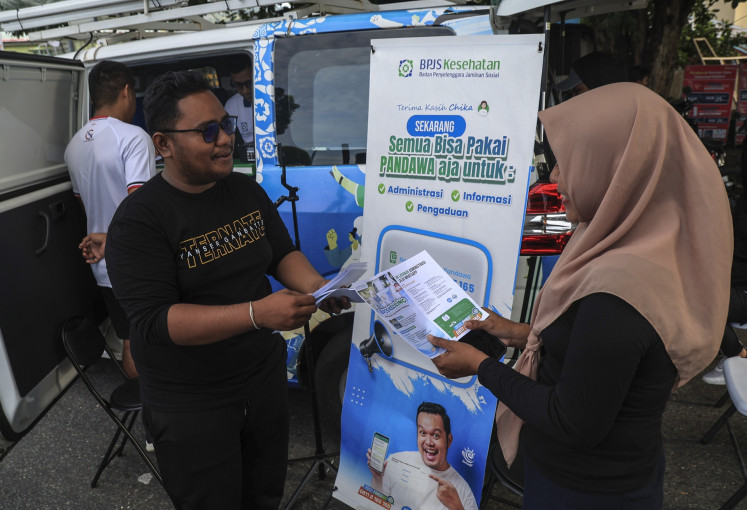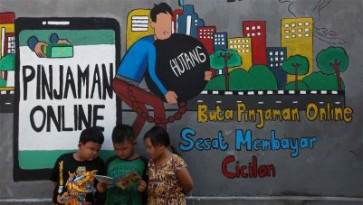Popular Reads
Top Results
Can't find what you're looking for?
View all search resultsPopular Reads
Top Results
Can't find what you're looking for?
View all search resultsRevolutionizing fintech lending rules to ignite stability in the financial system
By partnering with traditional banks, fintech lenders can benefit from existing infrastructure and expertise, while traditional banks can leverage fintech lenders' technological capabilities to streamline loan applications and improve customer experience.
Change text size
Gift Premium Articles
to Anyone
T
he fintech lending industry in Indonesia has experienced significant growth in recent years because of the adoption of technology-based solutions and the increasing demand for accessible financial services.
As of October this year, there were 101 licensed fintech lending companies or platforms in Indonesia. By September, the outstanding financing provided by the fintech lending industry had grown by 14.28 percent annually, reaching a total of Rp 55.70 trillion (US$3.59 billion) with a 2.82 percent non-performing loan ratio.
According to data from the Financial Services Authority (OJK), there have been 4,548 complaints regarding fintech lending from 2020 to 2022. Most of these complaints are related to the behavior of collection officers, accounting for 35.29 percent of the total complaints. Other complaints included loan restructuring or relaxation, external fraud such as scams and hacking and the misuse of personal data.
To ensure the long-term sustainability and stability of the industry, it is essential to establish a comprehensive roadmap for the development and strengthening of fintech lending services in Indonesia. The Financial Services Authority (OJK) has issued regulations for fintech lending that all platform providers must adhere to, as outlined in the 2023-2028 roadmap for technology-based joint funding services. This roadmap should prioritize the establishment of a robust regulatory framework to govern fintech lending activities.
It should include licensing requirements, transparency provisions and data protection measures to mitigate potential risks and enhance consumer protection. The roadmap should also focus on enhancing financial literacy among borrowers and promoting collaborations between fintech lenders and traditional financial institutions.
By partnering with traditional banks, fintech lenders can benefit from existing infrastructure and expertise, while traditional banks can leverage fintech lenders' technological capabilities to streamline loan applications and improve customer experience. These collaborative efforts will drive innovation and expand financial inclusion throughout the country.
Additionally, it is crucial to establish strong risk management practices and creditworthiness assessment mechanisms to maintain industry stability. The roadmap should emphasize the development and utilization of credit scoring models that incorporate alternative data sources to provide accurate assessments of borrowers' creditworthiness. This will enable responsible lending practices and reduce default rates.



















